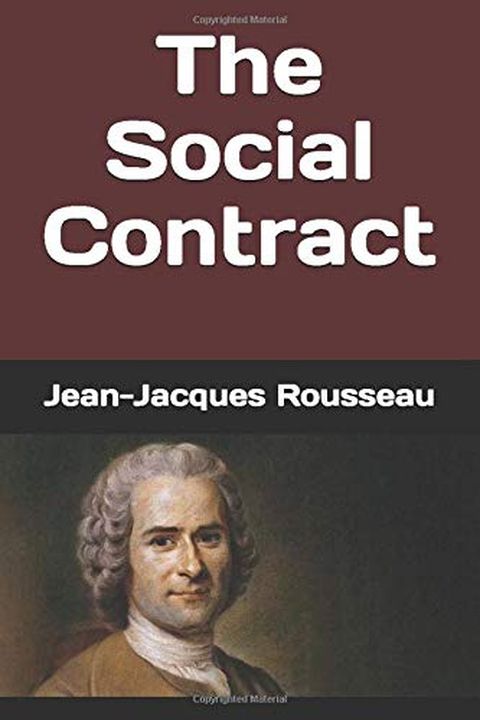The Social Contract Quotes
Every man having been born free and master of himself, no one else may under any pretext whatever subject him without his consent. To assert that the son of a slave is born a slave is to assert that he is not born a man.
...in respect of riches, no citizen shall ever be wealthy enough to buy another, and none poor enough to be forced to sell himself.
In truth, laws are always useful to those with possessions and harmful to those who have nothing; from which it follows that the social state is advantageous to men only when all possess something and none has too much.
As soon as any man says of the affairs of the State "What does it matter to me?" the State may be given up for lost.
In any case, frequent punishments are a sign of weakness or slackness in the government. There is no man so bad that he cannot be made good for something. No man should be put to death, even as an example, if he can be left to live without danger to society.
It is easier to conquer than to administer. With enough leverage, a finger could overturn the world; but to support the world, one must have the shoulders of Hercules.
The word ‘slavery’ and ‘right’ are contradictory, they cancel each other out. Whether as between one man and another, or between one man and a whole people, it would always be absurd to say: "I hereby make a covenant with you which is wholly at your expense and wholly to my advantage; I will respect it so long as I please and you shall respect it as long as I wish.
In a well governed state, there are few punishments, not because there are many pardons, but because criminals are rare; it is when a state is in decay that the multitude of crimes is a guarantee of impunity.
To renounce liberty is to renounce being a man, to surrender the rights of humanity and even its duties.
The people of England regards itself as free; but it is grossly mistaken; it is free only during the election of members of parliament. As soon as they are elected, slavery overtakes it, and it is nothing.
If there were a nation of Gods, it would govern itself democratically. A government so perfect is not suited to men.
MAN is born free; and everywhere he is in chains. One thinks himself the master of others, and still remains a greater slave than they.
The social pact, far from destroying natural equality, substitutes, on the contrary, a moral and lawful equality for whatever physical inequality that nature may have imposed on mankind; so that however unequal in strength and intelligence, men become equal by covenant and by right.
What, then, is the government? An intermediary body established between the subjects and the sovereign for their mutual communication, a body charged with the execution of the laws and the maintenance of freedom, both civil and political.
To discover the rules of society that are best suited to nations, there would need to exist a superior intelligence, who could understand the passions of men without feeling any of them, who had no affinity with our nature but knew it to the full, whose happiness was independent of ours, but who would nevertheless make our happiness his concern, who would be content to wait in the fullness of time for a distant glory, and to labour in one age to enjoy the fruits in another. Gods would be needed to give men laws.
Our will is always for our own good, but we do not always see what that is; the people is never corrupted, but it is often deceived..." (Bk2:3).
Usurpers always bring about or select troublous times to get passed, under cover of the public terror, destructive laws, which the people would never adopt in cold blood. The moment chosen is one of the surest means of distinguishing the work of the legislator from that of the tyrant.
Man’s first law is to watch over his own preservation; his first care he owes to himself; and as soon as he reaches the age of reason, he becomes the only judge of the best means to preserve himself; he becomes his own master.
Since men cannot create new forces, but merely combine and control those which already exist, the only way in which they can preserve themselves is by uniting their separate powers in a combination strong enough to overcome any resistance, uniting them so that their powers are directed by a single motive and act in concert.
